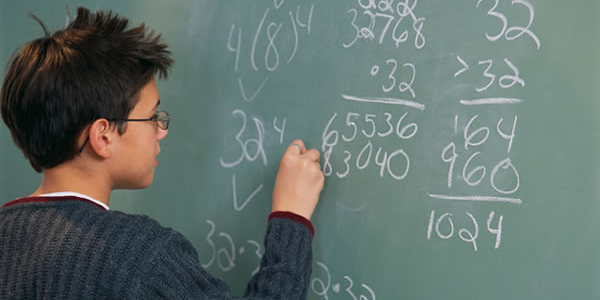
Washington: Scientists have discovered a brain circuit that boosts math's skills in children and could even be targeted to improve learning.
The circuit triggers an area near the back of the head known as the IPS (intraparietal sulcus), which is involved in processing figures, and is linked to the hippocampus where memories are stored.
Before children can learn to add and subtract, they must learn which abstract symbol, like '4' or '6', represents which quantity, a skill also known as 'number sense'.
Experts know the IPS plays a role in number processing but the circuits involved in learning number sense had remained a mystery until now.
Lead author Dr. Hyesang Chang, of Stanford University, California, said: 'Mathematical skill development relies on number sense, the ability to discriminate between quantities.
'Our integrated number sense training programme was effective in children across a wide a range of math abilities, including children with learning difficulties.
'We identify hippocampal-parietal circuits that predict individual differences in learning gains.
'Our study identifies a novel brain circuit predictive of the acquisition of foundational number sense skills and delineates a robust target for effective interventions and monitoring response to cognitive training.'
A four-week training programme emphasised mapping symbols to the amounts they represent, rather than simple fact memorisation.
The researchers studied synchronised activity between the hippocampus and other brain areas in 96 American children aged seven to 10.
Brain scans showed the connection between the hippocampus and the IPS before training predicted a child's ability to learn number sense.
Those with more synchronised activity learned more during the course.
It applied to typically developing children and peers with maths learning difficulties.
Dr. Chang said: 'Number sense in early childhood is predictive of academic and professional success, and deficits are thought to underlie lifelong impairments in mathematical abilities.
He added, 'Despite its importance, the brain circuit mechanisms that support number sense learning remain poorly understood,' the Daily Mail news reported.